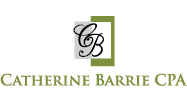Where To Begin
Contacting The Beneficiaries
Get Organized
Manage and Assess Assets and Liabilites
Financial Assets
Real Estate Assets
Digital Assets
Foreign Assets
Other Assets
Liabilities
Inventory
Contacting Third Parties
Filing Tax Returns
Verify Beneficiary Designations
Apply To Court
Distribute Assets

